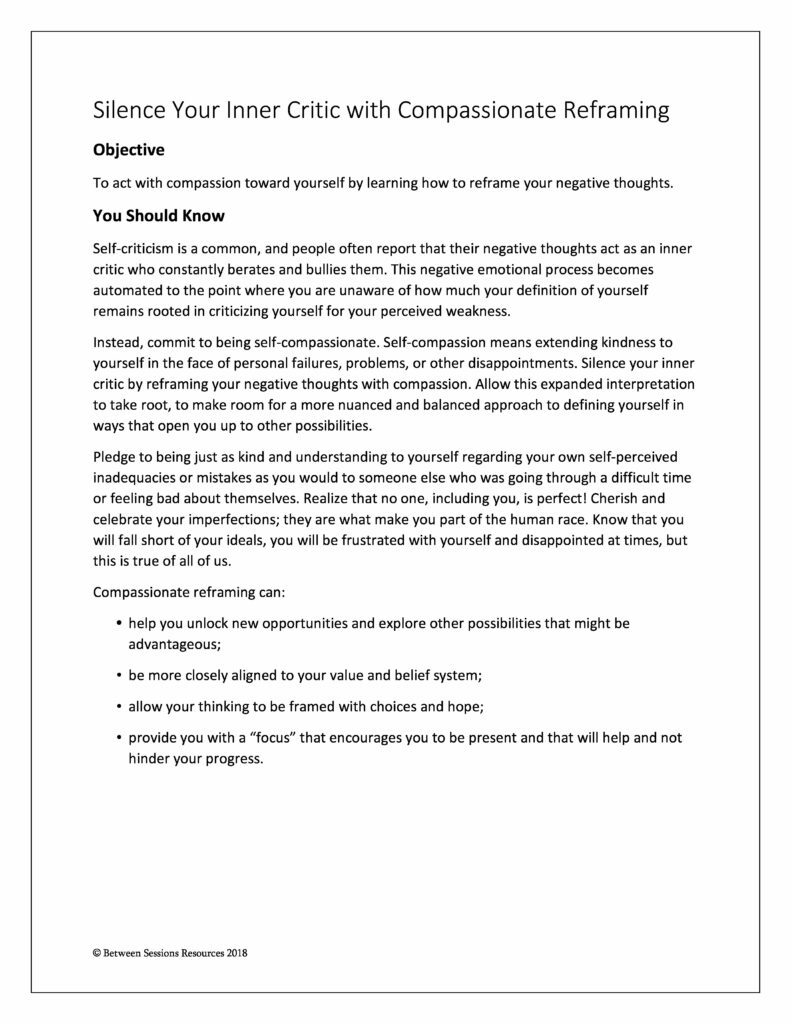Our coaching forms cover a wide variety of issues in the areas of self-growth, life skills, and wellness.
To modify the tools, click the ‘Send to Client’ button by each tool to open our Psychology Forms Filler. You can edit the tool as you see fit and then either print it out or send it to a client to be filled out online. Click here for a tutorial on using the Psychology Forms Filler.
Use the navigation links on the left of this page to view tools in a specific category. Or use the search function at the top of this page to find the exact tool you are looking for.
If you can’t find what you are looking for on this site, please let us know by
clicking here and our team of writers, graphic artists, and therapists will custom-design it for you.
This worksheet is designed to help couples identify harmful or verbally abusive patterns in their communication partner and learn healthier ways of approaching conflicts. (couples communication, marital therapy, couples counseling, conflict management, 1018)
This worksheet is designed to help people reframe their self-criticism and develop a more compassionate attitude towards themselves. People are asked to think about the critical words they use to describe themselves and to substitute their put-downs with more compassionate thoughts. (self-esteem, self-talk, self-image, 1018)
This worksheet is designed to help couples find new ways to show that they understand each other’s point of view. Skills covered in this worksheet include: active listening, responding non-defensively, positive communication. (couples communicating, marriage, 1018)
Most people simply accept uncertainty as a natural part of life, but people with anxiety disorders find it hard to accept uncertainty, particularly in certain situations. This worksheet is designed to help people tolerate uncertainty by using a five-step mindfulness technique that can help disengage from anxious thoughts and face uncertain situations without turning to others for help. (GAD, Generalized Anxiety Disorder, exposure, 1018)
This worksheet is designed to help people see how their excessive worrying and anxiety is affecting those around them. It explains the different ways that excessive worry can affect friends, relatives, and co-workers, and includes an “Empathy Test” designed to help people see how others view them. (GAD, Generalized Anxiety Disorder, Social Anxiety, worry, 1018)
This worksheet is designed to help people reduce stress in their lives by paying attention to how much time they spend emailing, using social media, and participating in listening and watching various media. (101518, mindfulness, anxiety)
This worksheet is designed to help people identify their thoughts about the worst things that could happen in various social situations. The worksheet also asks people to think about other possible outcomes. (social anxiety, 1018)
The objective of this worksheet is to deliberately do something that would be considered socially inappropriate and to tolerate the discomfort this causes. (social anxiety, exposure therapy, perfectionism, fear, 1018)
This worksheet is designed to help people identify the psychological and physical impact of chronic dieting. (Binge Eating Disorder, over-eating, weight control, 1018)
This worksheet teaches people the Applied Tension Technique which can be used to prevent a sudden drop in blood pressure which can cause fainting. The technique was developed for people with a fear of blood and injections and with practice can help overcome this phobia. (0918, simple phobias)










